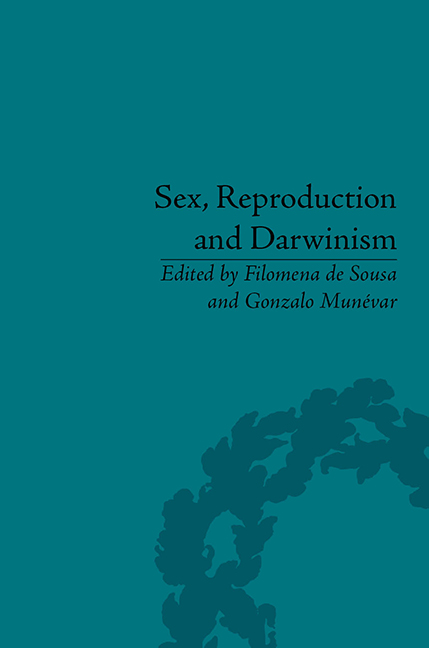Book contents
- Frontmatter
- CONTENTS
- Acknowledgements
- List of Contributors
- List of Figures and Tables
- Introduction
- Part I Reproduction, Mortality and Evolution
- Part II Reproduction without Sex?
- Part III Sex without Reproduction?
- 5 Evolutionary Theory, Constructivism and Male Homosexuality
- 6 Darwinism and Homosexuality
- 7 The Evolution of Female Orgasm: New Evidence and Response to Feminist Critiques
- Part IV Sexual Selection and Morality
- Part V Sex, Reproduction and Evolutionary Psychology
- Part VI Eugenics from Natural to Social Selection
- Notes
- Index
6 - Darwinism and Homosexuality
from Part III - Sex without Reproduction?
- Frontmatter
- CONTENTS
- Acknowledgements
- List of Contributors
- List of Figures and Tables
- Introduction
- Part I Reproduction, Mortality and Evolution
- Part II Reproduction without Sex?
- Part III Sex without Reproduction?
- 5 Evolutionary Theory, Constructivism and Male Homosexuality
- 6 Darwinism and Homosexuality
- 7 The Evolution of Female Orgasm: New Evidence and Response to Feminist Critiques
- Part IV Sexual Selection and Morality
- Part V Sex, Reproduction and Evolutionary Psychology
- Part VI Eugenics from Natural to Social Selection
- Notes
- Index
Summary
Introduction
Some important counterexamples to Darwin's On the Origin of Species were offered by animal behaviour that decrease either the individual's chances for survival or for reproduction. Altruism is an example of the first, homosexuality of the second. Although the problem created by altruism is considered solved by many biologists, the problem created by the existence of homosexuality still awaits solution. Most attempts to solve this problem have tried to show that natural selection and the existence of homosexuality are compatible because homosexuality is in some way adaptive. Against this adaptationist approach I argue that a simpler biological explanation based on gene expression and the variation of traits may suffice to explain the existence of homosexuality. Evolutionary biology, therefore, does not require that homosexuality be adaptive.
It is important to clarify at the start that strict homosexuality seems to be rare: it is limited to humans, domesticated sheep and perhaps a few other unconfirmed species. This does not diminish the problem. According to some claims, over 1,500 species of animals exhibit atypical sex practices, such as same-sex mating, which includes full anal penetration in lions, giraffes, bison and elephants. Gulls form lesbian relationships. Bonobos are a highly bisexual species. And male penguins form long-term homosexual relationships.
- Type
- Chapter
- Information
- Sex, Reproduction and Darwinism , pp. 95 - 108Publisher: Pickering & ChattoFirst published in: 2014



